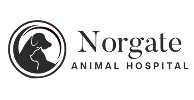Spaying your dog is one of the most important decisions you can make for their health and well-being. While it might feel like a big step, it comes with numerous benefits for your dog and your household. At Norgate Animal Hospital, we’re here to guide you through the process and help you provide the best care for spayed dogs.
What Does Spaying Involve?
Spaying is a surgical procedure that removes a female dog’s reproductive organs, preventing her from going into heat or becoming pregnant. It’s a routine operation performed under general anesthesia, and most dogs recover quickly with proper post-surgery care.
Why Spaying Your Dog Is a Great Choice
Spayed dogs enjoy several health and behavioral benefits. Here’s why spaying is worth considering:
- Health Benefits
Spaying significantly reduces the risk of serious health issues such as uterine infections and breast cancer. These conditions are more common in unspayed dogs and can be life-threatening if not treated. - Behavioral Improvements
Spayed dogs are less likely to exhibit certain behaviors associated with heat cycles, such as frequent urination, yelping, or restlessness. This makes life calmer and more enjoyable for both you and your pup. - Preventing Unwanted Litters
Spaying helps reduce the number of unplanned litters, which in turn helps control the pet population. By spaying your dog, you’re doing your part to ensure every pet has a loving home. - Longer Lifespan
Studies show that spayed dogs often live longer, healthier lives compared to their unspayed counterparts. This is largely due to the reduced risk of reproductive-related illnesses.
How to Care for Spayed Dogs Post-Surgery
After the procedure, your dog will need some extra care to ensure a smooth recovery. Here are a few tips:
- Provide a Comfortable Space
Create a quiet and cozy area where your dog can rest undisturbed. Keep them away from stairs, jumping, or rough play for at least a week. - Monitor the Incision Site
Check the surgical site daily for redness, swelling, or discharge. If you notice anything unusual, contact your veterinarian right away. - Prevent Licking
Your dog may try to lick the incision site, which can lead to infection. Using an e-collar or recovery suit can help keep the area protected. - Follow Medication Instructions
Your vet may prescribe pain relief or antibiotics. Be sure to give these as directed and watch for any signs of discomfort in your dog. - Limit Activity
Even if your dog seems eager to run and play, keep their activity level low during the recovery period to avoid complications.
When to Call the Vet
While most spayed dogs recover without any issues, it’s important to watch for signs that something may be wrong, such as:
- Loss of appetite
- Lethargy or extreme fatigue
- Persistent vomiting or diarrhea
- Swelling or bleeding at the incision site
If you notice any of these, don’t hesitate to reach out to us at Norgate Animal Hospital.
Schedule Your Dog’s Spay Appointment Today
Spaying is a safe and effective way to improve your dog’s health and well-being while contributing to responsible pet ownership. At Norgate Animal Hospital, our team is here to provide compassionate care for spayed dogs and guide you through every step of the process.
Contact us today to learn more or to schedule your dog’s spay appointment. Let’s work together to give your furry friend a happier, healthier future.


